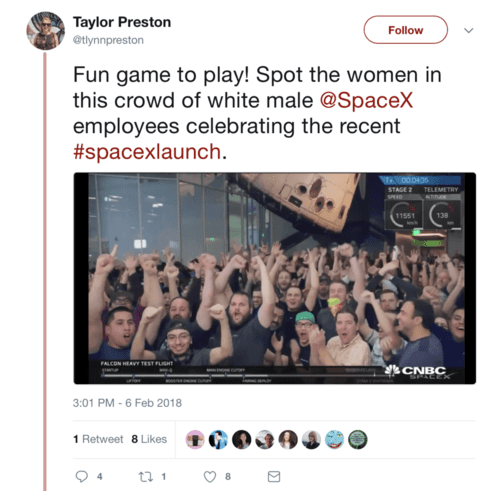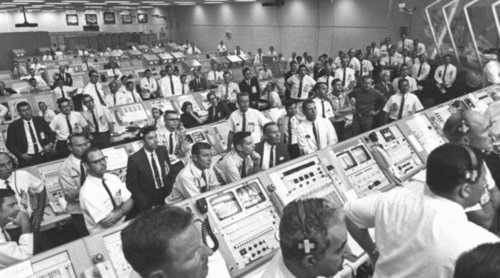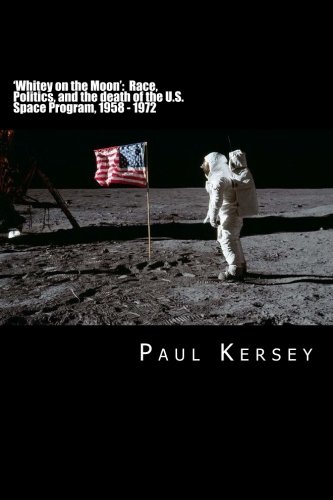
Elon Musk Points Up America’s Dilemma — Diversity Or Greatness? (It Can’t Have Both)
By Paul Kersey
02/09/2018
A company founded by an African immigrant just launched the heaviest payload ever delivered by a commercial company into space [SpaceX launches its powerful Falcon Heavy rocket for the first time, by Loren Grush, TheVerge.com, February 6, 2018]. But rather than celebrating, Main Stream Media journalists/ activists were furious — the immigrant from South Africa is a white man; and pictures show SpaceX isn’t very diverse. This hostile reaction of the chattering class shows America is facing a choice: diversity or greatness.
You might ask why commercial space flight is necessary, seeing as how our tax dollars are paying for NASA. However, incredibly, NASA’s main priority became Muslim outreach under the Obama Administration .[NASA’s Muslim Outreach, by Mona Charen, RealClearPolitics, July 7, 2010]. Paradoxically, given that hating Russians is the main preoccupation of “American” journalists, the U.S. now relies on the Russian Federation to send its astronauts to the International Space Station [NASA buys two more seats to the International Space Station on Russia’s Soyuz rocket, by Sean O’Kane, The Verge, February 28, 2017].

Filling the gap: private companies, with SpaceX being the most prominent. Its founder is Elon Musk, who was born in Pretoria, South Africa, and later moved to Canada and then the U.S. While technically more “African-American” than the Black Congressional Caucus, he is “hideously white” — as is most of the staff of SpaceX.
Musk, as Ashlee Vance makes clear in his biography Elon Musk: Tesla, SpaceX, and the Quest for a Fantastic Future, is obsessed with colonizing the heavens:
While the “putting man on Mars” talk can strike some people as loopy, it gave Musk a unique rallying cry for his companies. It’s the sweeping goal that forms a unifying principle over everything he does. Employees at all three companies are well aware of this and well aware that they’re trying to achieve the impossible day in and day out. When Musk sets unrealistic goals, verbally abuses employees, and works them to the bone, it’s understood to be — on some level — part of the Mars agenda.Peter Thiel, the pro-Trump Silicon Valley investor, has had highly public battles with Musk over the years but is quoted offering praise for Musk’s vision of space exploration:
Thiel thinks Musk’s goal of getting humans to Mars should be taken seriously and believes it gives the public hope. Not everyone will identify with the mission but the fact that there’s someone out there pushing exploration and our technical abilities to their limits is important. “The goal of sending a man to Mars is so much more inspiring than what other people are trying to do in space,” Thiel said. “It’s this going-back-to-the-future idea. There’s been this long wind-down of the space program, and people have abandoned the optimistic visions of the future that we had in the early 1970s. SpaceX shows there is a way toward bringing back that future. There’s great value in what Elon is doing.” p. 336But on social media the successful launch of Musk’s rocket was denounced rather than celebrated. IBM employee Taylor Preston tweeted:

Taylor’s Twitter account says she is a visual designer at IBM and an alumni of Carnegie Mellon. I happened to take a screenshot of this tweet before she protected her account. Of course, this screenshot is reminiscent of the almost entirely white employees of the NASA that got us to the moon in the 1960s.


Depending on your viewpoint, Preston’s tweet is either hilarious or deeply disturbing: she truly believed she had one-upped Space X by pointing out the lack of racial and gender diversity among Musk’s employees. She was hardly alone in this, as anything “white” is somehow inherently evil in the Current Year [Today’s SpaceX Launch Wasn’t Groundbreaking In One Major Way, by Madeline Buxton, Refinery29, February 6, 2018].
Musk has already been targeted by the SJWs by refusing to divulge any demographic data on the men and women behind the SpaceX revolution:
Most major tech companies have released diversity reports, including Apple, Google, Airbnb, Netflix, Amazon, Facebook, and Twitter. And while there are still other holdouts, companies run by one of the highest-profile names in tech — Elon Musk — are perhaps the most notable, as some have noticed. This is despite the fact that his two biggest brainchild companies, Tesla and SpaceX, have both been on the receiving end of lawsuits alleging “pervasive harassment” and discrimination (recently at Tesla) and racist and homophobic policies (in 2014 at SpaceX).Over the years, SpaceX has been sued multiple times for alleged racist practices. But despite (because of?) this, the rockets engineered by overwhelming white employees continue to hurtle into the heavens [SpaceX workers launch 3rd suit, allege racist policies, by Vin Gurrieri, Law360, August 20, 2014].Neither company responded to Vocativ inquiries as to whether such reports have been conducted internally or if there are plans for releasing such data in the future. In addition, SolarCity, a venture chaired by Elon Musk and then recently acquired by Tesla, stopped answering Vocativ’s Twitter messages after a question about diversity reports. When contacted by Motherboard about the lack of published Equal Employment Opportunity reports last year (something companies like Apple and Google have voluntarily started doing before it becomes mandatory in 2018) a representative said, “Both SpaceX and Tesla have many women in leadership positions and throughout the company. Both are committed to diversity and equal pay for women.”
[One Of Biggest Names In Tech Has Avoided Publishing Diversity Numbers: Companies run by Elon Musk have been mum, despite discrimination accusations, by Allee Manning, Vocativ.com, April 10, 2017]
In other words, while virtually every software company in Silicon Valley is prostrating itself before the diversity idol to appease the anti-white rent-seekers, SpaceX continues to be a meritocracy, valuing talent over race. And the other companies in Silicon Valley are still accused of racism anyway [Silicon Valley’s race gap is getting worse, not better, new research shows, by Jessica Guynn, USA Today, October 3, 2017].
MSM Enforcers affect to believe that the problem is there aren’t enough “role models” for black engineers:
Another issue is the lack of role models. Joshua Mann did two internships at SpaceX and another at Blue Origin, the rocket startup founded by Amazon’s Jeff Bezos. Although he says he felt welcomed and valued, Mann told the IB Times that he was only one of two black engineers. The others who worked there were mechanics or held other roles.The Ruling Class conclusion: yet more more Affirmative Action for Silicon Valley![The Reasons Why There Aren’t More Black Engineers In Silicon Valley, by Lydia Dishman, Fast Company, December 1, 2015]

But the brutal truth is that such diversity will choke off innovation and accomplishment — as it has already done in our government space agency. And then anyone who wants to accomplish anything (a white man most likely) will need to find an escape.
This seems to be the pattern of our history. While researching my book Whitey on the Moon: Race, Politics, and the death of the U.S. Space Program, 1958 — 1972, I walked away depressed after a trip to the U.S. Space and Rocket Center in Huntsville, Alabama. I realized our government had traded the conquest of the stars for the impossible and unworthy goal of racial egalitarianism.
Now, Musk is showing the spirit of Western Man is still capable of taking us to the stars. But same forces which destroyed NASA are working to destroy SpaceX and Silicon Valley in general.
The challenge of the next century will be to escape egalitarianism. And if we can’t achieve that on Earth, it may mean achieving it in outer space.
